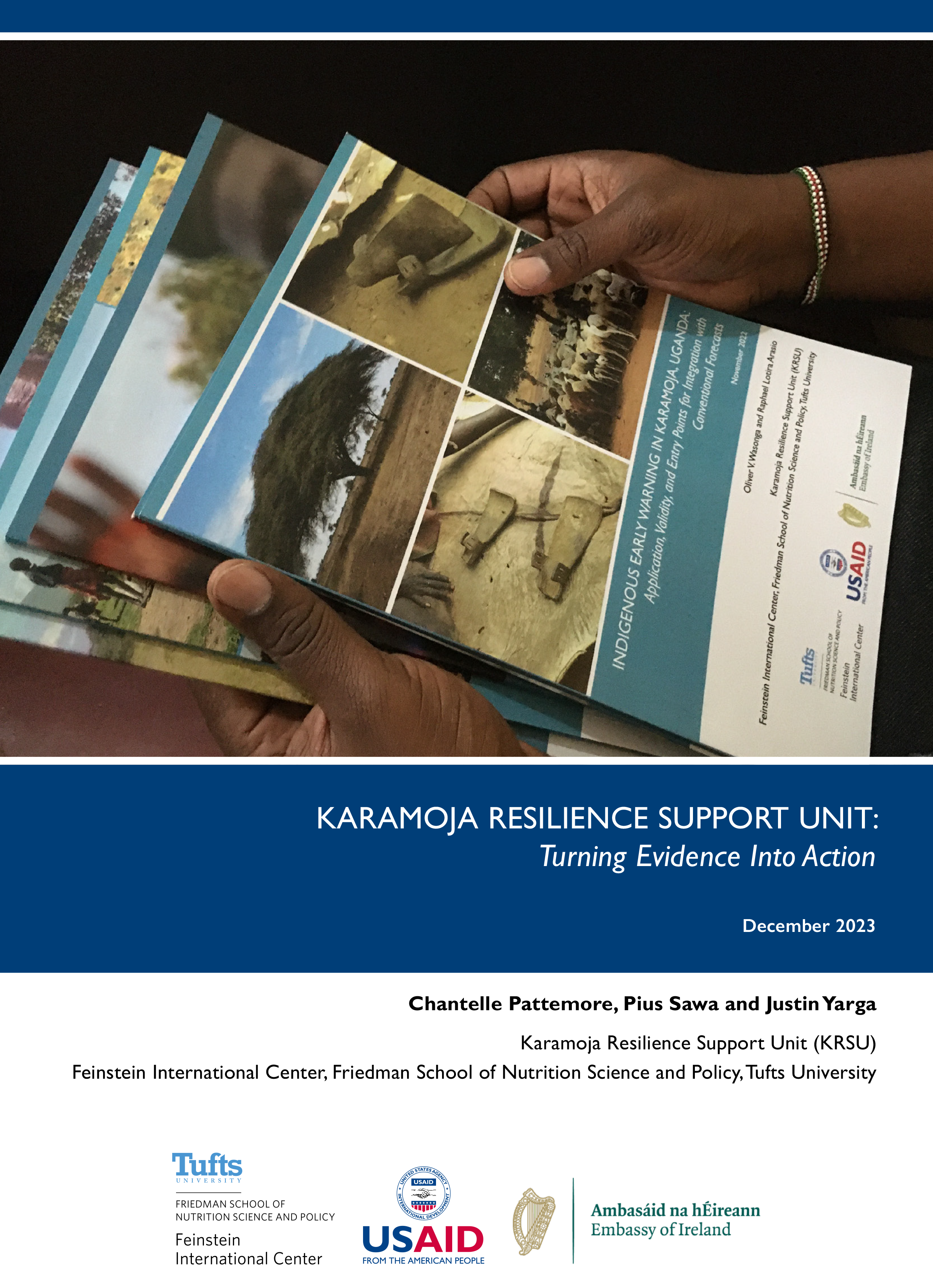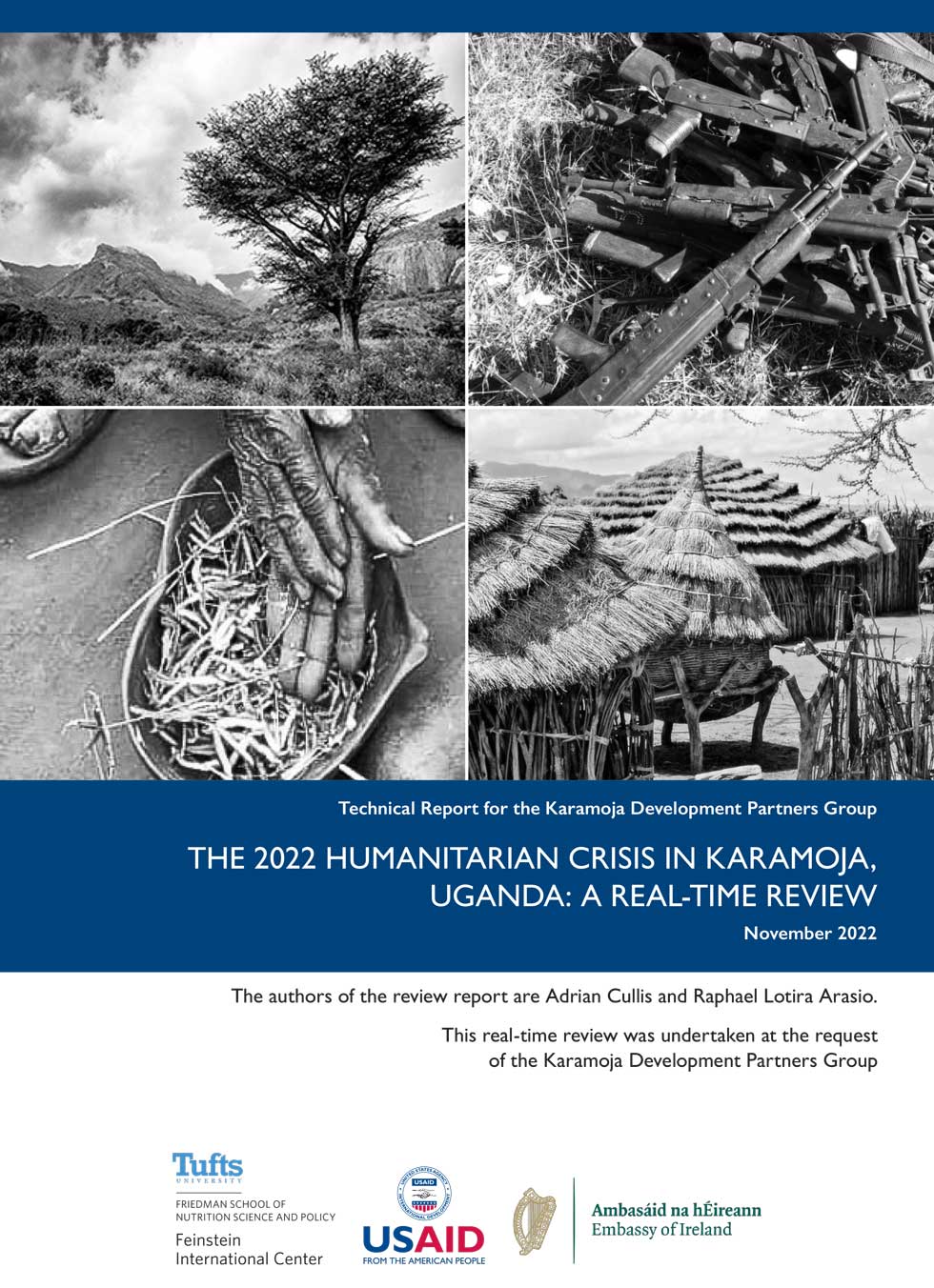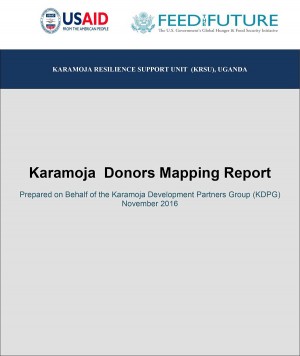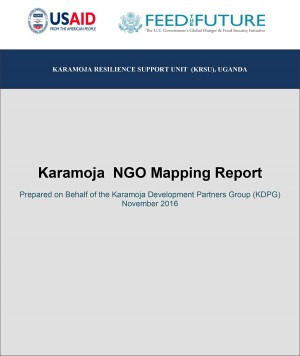KARAMOJA RESILIENCE SUPPORT UNIT: Turning Evidence Into Action
Donor and NGO Mapping Reports

KARAMOJA RESILIENCE SUPPORT UNIT: Turning Evidence Into Action
To gauge understanding of how KRSU’s work benefits and is utilized in Karamoja, a rapid review was conducted in November and December 2023. The review involved face-to-face interviews with a number of the organization’s partners – including non-governmental organizations (NGOs), universities, academics, and donors.

The 2022 Humanitarian Crisis in Karamoja, Uganda: A real-time review
This real-time review aims to document the events that led to Karamoja’s hunger crisis in 2022, the reporting of the worsening situation by early warning systems, and the responses of the Government of Uganda and the international aid community. The review took place from the September 27–October 21, 2022.

Karamoja Donors Mapping Report
A mapping of 2017 funds to Karamoja from 10 major bilateral and multilateral donors. Additional Information This donor mapping exercise has been compiled by the USAID supported Karamoja Resilience Unit (KRSU), on behalf of the KDPG. This is the second year that the KDPG has produced this mapping exercise. This year it is estimated that these 10 donors will provide €89 million (approx. 380 billion Ugx) during 2017. The analysis provided in this report (see Section 2) demonstrates that this funding is provided across all sectors with a particular focus on the basic service delivery (KIDP strategic objective 1) and food security (KIDP strategic objective 6).

Karamoja NGO Mapping Report
This mapping exercise has been compiled by the USAID supported Karamoja Resilience Support Unit (KRSU), on behalf of the Karamoja Development Partners Group (KDPG). This mapping is based on responses from 54 NGOs (International, National, and Faith Based NGOs) out of a total of 59 organizations identified and contacted, and compiles information collected between June and November 2016. Over time more information will be gathered, and updated maps will be shared with stakeholders.